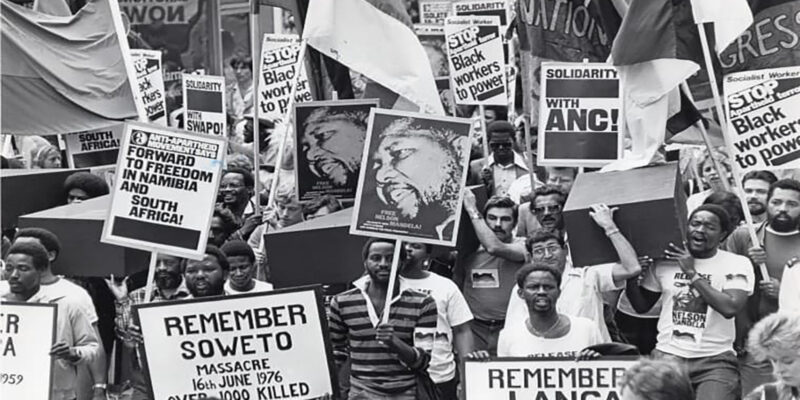Maisiri, Nyalungu e van der Walt. “Anarchist/ Syndicalist and Independent Marxist Intersections in Post-apartheid Struggles, South Africa: The WSF/ ZACF current in Gauteng, 1990s-2010s”

Leroy Maisiri, Phillip Nyalungu and Lucien van der Walt (2020), “Anarchist/ Syndicalist and Independent Marxist Intersections in Post-apartheid Struggles, South Africa: The WSF/ ZACF current in Gauteng, 1990s-2010s,” Globalizations, volume 17, number 5, pp. 797-819. Part of a special issue on “Pluriversality, Convergence, and Hybridity in the Global Left,” edited by Alex Prichard and Owen Worth.
South Africa has a long-established independent left, outside the big traditions of nationalism and Marxism-Leninism. Post-apartheid its fortunes have varied considerably, as space opened up for movements to the left of the African National Congress and the South African Communist Party, but opportunities declined as the state increased its legitimacy, penetration of civil society, and systems of patronage. This paper looks at cooperation, competition and convergence on the independent left, with particular reference to independent Marxists (mainly the well-established Trotskyist tradition) and revolutionary anarchists and syndicalists (a movement that revived in the 1990s). These intersections have taken place in study groups, popular education, student struggles, and post-apartheid social movements and unions, and indicate the vitality and fragility of the independent left, and the ongoing importance of cooperation and overlaps, as well as of long-standing divisions over theory and strategy. Particular attention is paid to Keep Left, the Socialist Group, the Democratic Socialist Movement, and the Zabalaza Anarchist Communist Front.
* Download the complete article here: Maisiri, Nyalungu, van der Walt – Left intersections in post apartheid – WSF-ZACF current in Gauteng 1990s-2010s [final]

